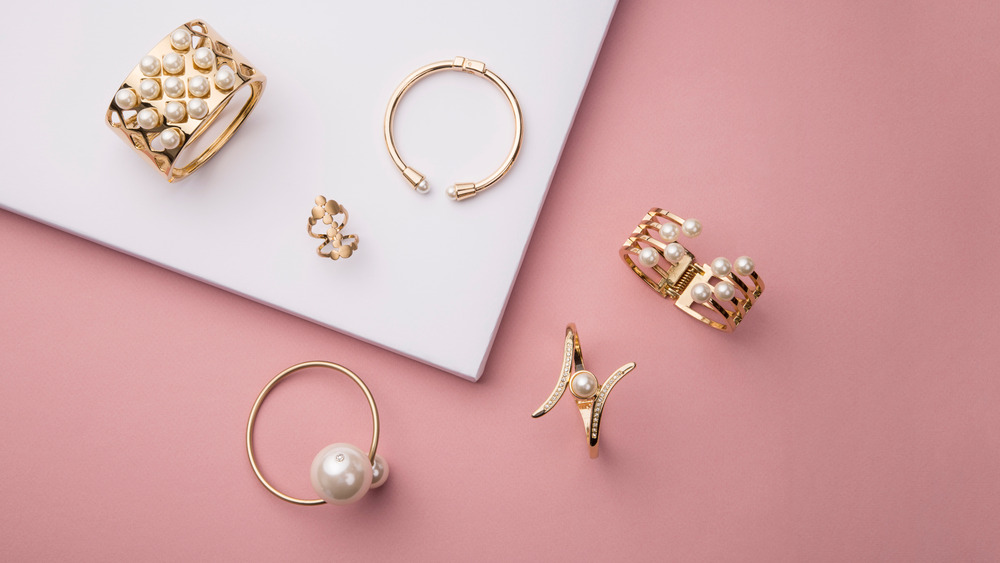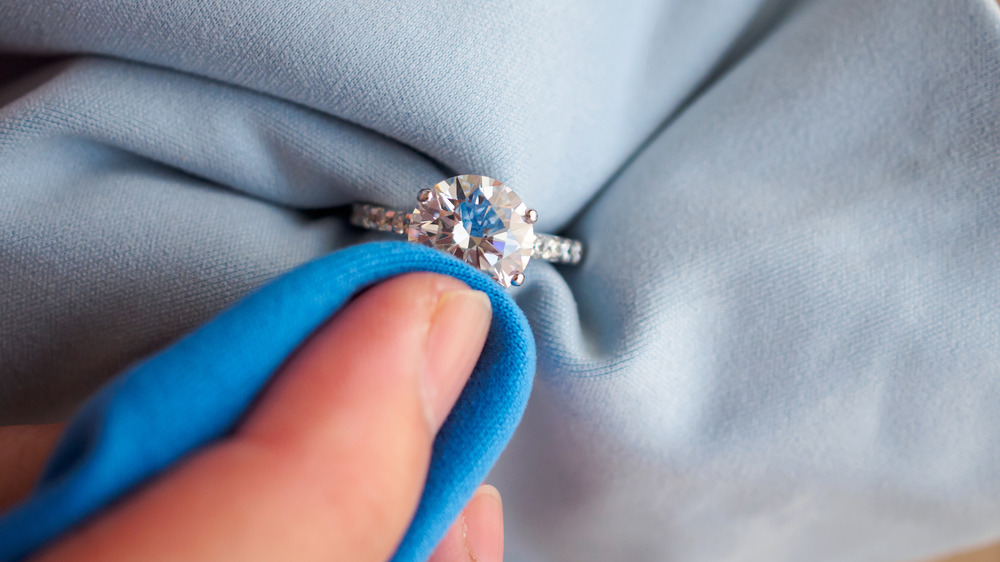This Is What Really Happens When You Never Take Off Your Jewelry
When you buy a new piece of jewelry there can be the temptation to wear it constantly. But, according to Australian jewelry designer, Simone Walsh, wearing the same jewelry all the time can be bad for your pieces and, if they are made of non-precious metals, bad for you, as well.
Self reported that when it comes to jewelry it's really important to know if you're sensitive to certain materials, such as nickel, especially when you're wearing pieces for longer periods of time. Associate Clinical Professor of Dermatology at Mount Sinai Hospital, Marina I. Peredo, M.D. explained that metals can be irritating on the skin. "Perspiration can also cause a reaction between the jewelry and skin as well as the interaction of certain medications, jewelry, and skin," she said.
Simone Walsh outlined that you should consider cleaning your jewelry every one to two weeks to prevent irritation and possible infections. Good Housekeeping reported that if you wear your jewelry constantly, without cleaning, you're likely to cause damage – something you definitely don't want to do to your more precious pieces. "Rings come in completely caked with lotion, and with dirt under the prongs. This can compromise the settings and can damage certain stones," Elizabeth Doyle, gemologist and owner of Doyle & Doyle Jewelers told the publication.
Experts suggest not wearing jewelry in the shower
Tarnished jewelry doesn't just change how it looks, it can leave marks on your skin. It can be difficult to know which materials you can wear in water but the jewelry retailers, Rellery, wrote that as a general rule you shouldn't wear your jewelry in water.
"When all is said and done, it's a good idea to remove your jewelry before going to the beach or taking a shower. Water can be corrosive to metals, and the chemicals we use every day can cause a host of issues with your fave jewelry picks," the website reads. Adding, "You don't want to damage your precious pieces, and no one likes to explain how the family heirloom was eaten by a dolphin on your surfing trip."
It's better to be safe than sorry but Dr. Peredo told Self that certain pieces of jewelry are less susceptible to being affected by water. "Earrings that have wires or posts comprised of nickel, copper or cadmium can cause an infection in the ears," she said, "Most people require hypoallergenic, gold or platinum posts on their earrings to avoid infection, so the length of time you wear your earrings has little to do with the infection."
How to clean your jewelry
If you do want to wear the same jewelry every day, Good Housekeeping recommends that you stay on top of cleaning it. If you're not sure when your pieces need cleaning the jewelers 12Fifteen say that if you notice a dull shine, cloudy appearance, or visible discoloration then it's time.
While the thought of putting cleaning products on your prized jewels may leave you feeling nervous, no need to stress. Jennifer Gandia, owner of Greenwich Jewelers told Good Housekeeping, "A microfiber cloth is great for getting any film or dirt off gemstones. There are also many jewelry cleaners you can buy, but we tell people that a mild dish detergent with a little warm water works well, too."
As The Spruce notes, cleaning your jewelry will, not only make it look shinier, but it will also protect your skin. They highlight that you should consider cleaning your pieces every two weeks with a deeper clean once a month. If you're unsure of how to do this or are scared of damaging your pieces, you can speak to a jeweler for advice and guidance.
You should keep on top of cleaning your jewelry at home every month, but twice a year you should take your pieces to be professionally cleaned. This may be free depending on where you bought your pieces. These professional cleanings allow the jeweler to not only clean your pieces thoroughly with tools you don't have at home, but they can also reset and repair them if necessary (via 12Fifteen).


